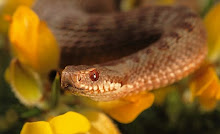One thing however, which we have to be thankful for is the fact that the people undertaking the work will be experts and professional when it comes to Forestry Management.
I am sure we can rely on the Forestry Commission to halt the spread of this disease and we must give them our support as if the decision is taken to fell all larch, it will be a tough decision to make.
If we do lose the larch our wildlife will be affected and one species that will take the brunt of it is the goshawk as this bird favours larch when nest building.
Mature larch are very tall with very few branches low down and this gives the gos a perfect habitat to hunt
Up until recent years the goshawk was on the red list for endangered species in the UK. Their numbers were at critical levels and in some cases they were extinct from many parts of the UK. The reason their numbers plummeted was due to persecution and it is very sad that this time a more natural disaster could have a massive impact on this species in the Forest of Dean once again.
Goshawk build numerous massive nests and they will then rotate between nests year after year, so if the trees come down the nests will come down with them.
This bird will nest in other trees such as conifers and only time will tell what impact the felling of the larch will have on Britain's most persecuted bird.
 |
| Goshawk nest high up in Larch Tree |
 |
| Closer view of same nest. Photographed from ground level |
 |
| Female Goshawk |
Click Here for Full Story
Rob







Thanks for telling us about the nesting of the Goshawk I know a lot more now.
ReplyDeletepeter